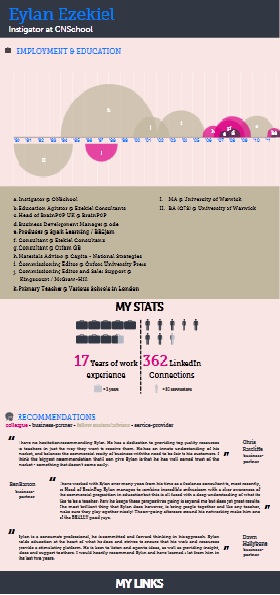Why give up a great job to take on a project that has little hope of success, for no pay; risking reputation and friendships?
In this blog post, and the next few, I hope to inform those who wonder what drives someone to get involved in something as nebulous as a ‘Big Society’ project. The big surprise for many is that, for me, it is not money! I have been leading a proposal for a secondary free school in Oxford – ONSchool www.onschool.org.uk since June 2011.

From day one of announcing this idea, people asked me, “Why are you doing this?”. Apart from all the reasons to do with education, there had to be more to it, right?
Anyone who knows me, and my views on social justice, knew that I could not be doing this because of the politics.
- I am not ideologically driven to support the Coalition Government policies.
So, most assumed I wanted to be the Head, or Principal Designate.
- I didn’t / don’t want to be Head – and want a full, open recruitment process for all roles.
Although only my closest friends could ask, there is also the question of ‘Ego’ and ‘Legacy’. Perhaps I was doing this to become famous – or something! I cannot honestly answer this – except to say that, given that 90% of the applications last year failed, I could not be doing this for this reason alone .
- It is likely my ego will take a bashing and I will lose ‘perceived’ respect of those in my professional networks, as a ‘failed’ applicant.
The next assumption was that I’d teamed up with an Academy Chain, or profit driven businesses who were paying me to do this – or would do if we were successful.
There is no such arrangement with any company driven by profit. I receive no ‘retainer’ or have any promise of one.
Finally, those who care about me and our family asked if I had a hidden pile of cash to draw on. Any money we had saved had just mostly gone on an extension and improvements to our house, that finished in May 2011.
- We are not rich, or even ‘comfortably off’ (whatever what means!).
When friends heard this, they asked how we were going to survive, and if I was mad!
I had been very successfully leading a fantastic business providing educational resources for schools, and (if I am honest) being paid more than I had been expecting to be – working with great people, with a great boss. I was not pushed – I left by choice.
It is true that leading the ONSchool proposal, with a vision built around Innovation – threaded through with transformative use of digital technology – was ‘in tune’ with my professional interests – in that I have been working in educational organisations to bring change and improvements through use of ‘ICT’ for 20 years. However, there was no obvious way for me to make a living from this. One of my ex-clients said to me recently:
“What you are doing is amazing, but we don’t know how your new skills and knowledge could help us, as you have moved out of the ‘box’ we knew you were an expert in.”
I have been doing this without pay or any employment (or expectation of any resulting from this project) and have been working close to 100% on this since the Summer. So, you might ask again, ‘Why?”
But, there is still a big question… How can I help to pay the mortgage (again)?
In my next blog post, I want to talk about the income options available to me – and some of the ethical issues I am finding myself dealing with, such as:
Is it right to profit in any way from being involved in ONSchool?
Is there a moral difference between being paid by a Local Authority and a private company if the work is the same?
How can I learn from others who have opened free schools?
Given that the free school policy is changing the landscape in education – is it ok to stake a claim in the new territory – or should I wait till others have proven the ground?
How many more risks can I afford to take?






